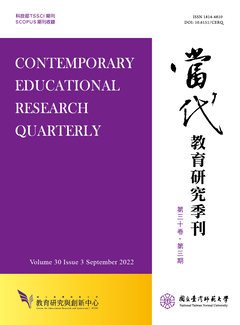

In the era of globalization, history education begins to stress moving beyond a single national perspective to understand the past, and preparing students to think contextually and understand multiple causations. This study assumes that it is easier for students to acquire the ability to think contextually through learning internationally related historical events. Using the interpretive text-analysis method, this study uses the MuDan Incident as a case to examine how Juniorhigh school social studies (history) textbooks represent the incident and explains its causation, in order to understand how the textbooks provide opportunities for students to think contextually and understand multiple causations. We examine textbook narratives of Nani, Kang Hsuan, and Han Lin publishers and the teachers’ manuals. The results show that “the status of the Ryukyu kingdom,” “modern sovereign nation-state system (the Westphalian system) vs. Chinese world order system (Tianxia system),” aboriginal Formosa as non-territory,” “the reactions of the Western countries & the domestic factors in Japan,” and “the perspectives of Taiwanese indigenous peoples” are important contexts to understand the MuDan Incident, however, current textbooks and teachers’ manuals fail to representthe event in a contextualized way, which would not help students get into the historical contexts to understand the past. We argue that if history textbooks and teachers could offer more background knowledge and ideas about the world in the past, Taiwan’s students could not only develop abilities to think multi-causally, but also ground their global perspectives naturally in historically contextualized thinking.

This work is licensed under a Creative Commons Attribution-NonCommercial 3.0 Taiwan License.
Center for Educational Research and Innovation, National Tawain Normal University
162, Ho-Ping East Rd, Sec. 1, Taipei, Taiwan | Tel:+886-2-7749-3670 | E-mail: cerecerq@gmail.com
CERI | NTNU | E-mail Alerts | Open Journal System
© 2014 CERI-NTNU
